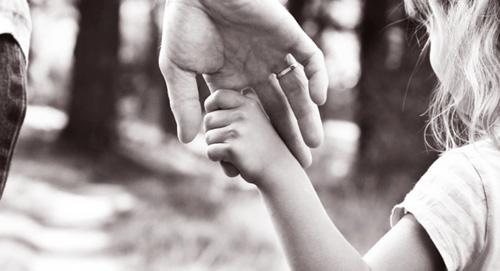为人父母,审慎处之
2018-05-22ByBrandonMcGinley
By Brandon McGinley

Among the many controversies to emerge from the 2016 incident at the Cincinnati Zoo,2 the responsibilities of parenting is perhaps chief among them. Im only a few years into parenthood, but I can say this with absolute confidence: Parenthood is the ultimate teacher and tester of the virtue of prudence.
Lets get this out of the way: the disparity between the value of human and animal life is so radical that it would be better for every lowland gorilla in the world to be shot in the head than for one child to die at the hands of such a creature.3
If this is the case, one might wonder, why dont we do just that? If human life is so incomparably valuable, why not round up and euthanize every creature that could possibly pose a fatal threat?4
Any reasonable person would think this suggestion obviously ridiculous, but why? Put simply, it would be imprudent5. We dont kill every dog that could maul a baby, not because we dont value babies, but because there are competing goods, such as the life of the animal itself and the delight his companionship brings to other people, which balance the miniscule threat a Cocker Spaniel poses to an infant.6
Prudence is traditionally considered the fundamental virtue by which we use the intellect to apply moral laws to everyday life.7 A great deal of prudence consists not just of choosing good over evil, but rather of balancing competing goods, carefully weighing them so as not to allow one to overwhelm and exclude others.8 Vice is found in excess, virtue in the mean.9
In a world where parenting outrages spread daily like wildfires across the internet and consume communities of commenters, this is very important to remember: Unless a parent is incorrigibly abusive or neglectful,10 he or she will never intentionally choose against the good of his or her child. Most of the time, the outrageous parent du jour11 is just choosing among competing goods—that is, exercising prudence—in a way different from the way you do. And when parents fail—and we do!—it is hardly ever a failure of care or concern or love, but a failure of prudence.
For parents of young children more than for people in any other stage of life, every day is a constant stream of little prudential decisions among competing goods. For instance: Do I let my toddler12 play in the dirt? I weigh the good of independent exploratory play against the good of hygiene.13 I consider how recently I applied weed killer in the area, how much time we have until grandma arrives, and the likelihood the child in question will try to eat rocks. When I make a decision, Im not deciding against play or cleanliness, but for what appears to be at that moment the most compelling14 collection of goods. And I might get it wrong. He might eat a rock.
Prudence will look different for different parents with different children in different circumstances. Parents of an only child will balance goods differently from parents with a large brood, where the good of, for instance, individual attention and scrutiny will necessarily be deemphasized.15 Poor parents will balance goods differently from rich ones because they are more constrained16 in their choices. When a poor single mom drops her child off at a public park during her shift at McDonalds, she isnt choosing against the safety of her child but for an economic necessity.
Parenting problems most often arise not from indifference to the good of children, but overemphasis on one type of good to the exclusion of others. “Helicopter parents” weigh safety so highly that the goods of independence, exploration, and learning to cope with physical and emotional pain (yes, these are goods) are excluded, to the detriment of the child.17 A certain kind of hippie parent, on the other hand, weights independence so highly that the goods of discipline, orderliness, and deference to authority (yes, these are goods) are never experienced.18 Again, these parents are not necessarily intentionally choosing against certain goods; rather, in their single-mindedness, they neglect them.
I understand the impulse for parents to take down other parents on the internet.19 None of us know if were doing it right, so it feels good to have an obvious example of Doing It Wrong with which to compare ourselves. But this only further feeds the original insecurity. Rather, let me make a proposal that might sound radical in an age of internet trolls20 and Twitter wars: Lets work on growing in prudence together by trying to understand—and maybe even learn from—those whose parenting choices are different from our own.

1. prudence: 謹慎,深谋远虑,后文出现的prudential是其形容词形式。
2. controversy: 争论,辩论;Cincinnati: 辛辛那提,美国中部俄亥俄州西南端工商业城市。
3. 让我们这么说吧:人类与动物生命价值的差异是如此巨大。人们会乐意去击毙世界上所有的低地大猩猩,从而不让任何一个人类小孩被其伤害致死。disparity:(尤指不公正的)不同,差异;radical: 重大的,激进的;lowland gorilla: 低地大猩猩,大猩猩的亚种。
4. round up:(对牲口的)赶拢,驱集;euthanize:使(动物)安乐死;fatal: 致命的,重大的。
5. imprudent: 轻率的,鲁莽的。

6. maul:(动物)袭击,撕咬;competing goods:指“可相竞争的益处”;miniscule: 极小的;Cocker Spaniel: 可卡犬,一种小猎犬。
7. fundamental: 根本的,基本的;intellect: 智力,思维能力。
8. 为人父母的审慎之道不仅在于趋善避恶,更在于从互有利弊的事物间寻找平衡,谨慎地权衡利弊,从而不使某一方具有排除其他各方的压倒性优势。overwhelm: 压垮,击败;exclude:排斥,拒绝接纳。
9. 审慎过度,道德或不再;审慎不足,美德许仍存。vice: 道德败坏的行为。
10. incorrigibly: 不能矫正地,根深蒂固地;abusive:辱骂的,虐待的。
11. du jour: 当今的,现在流行的。
12. toddler: 学步的儿童。
13. exploratory: 探索的,勘探的;hygiene: 卫生,保健。
14. compelling: 令人信服的,引人注目的。
15. brood: 一窝,一伙;scrutiny: 仔细的审视,彻底的检查;deemphasize:使不重要,不再给予强调。
16. constrained: 拘泥的,受限制的。
17.“直升机式父母”将子女的安全看得极其重要,从而将独立、探索和学习解决身心痛苦等这些同样对成长有益的因素排除在外,认为后者只会给孩子带来损害。Helicopter parents:“直升机式父母”,指过分介入儿女生活、保护或是干预其生活的父母,因为像直升机一样盘旋在儿女身边,故名;detriment: 损害。
18. hippie: 具有嬉皮士特点的,指叛逆、反传统的颓废派作风;deference: 顺从,尊重。
19. impulse: 冲动;take down: 贬损。
20. internet troll: 网喷,网络暴民,指在社交网络上发表极端或攻击言论的网民。
